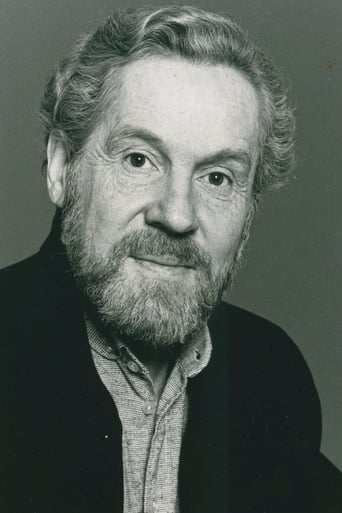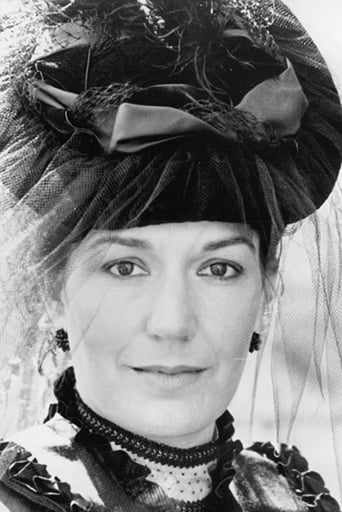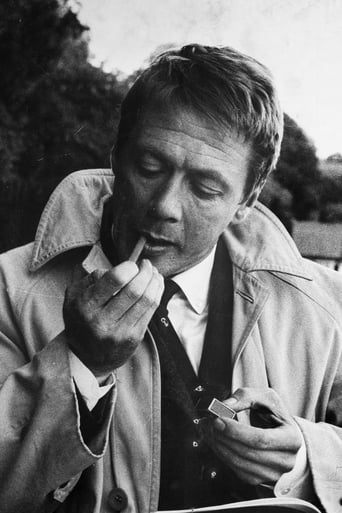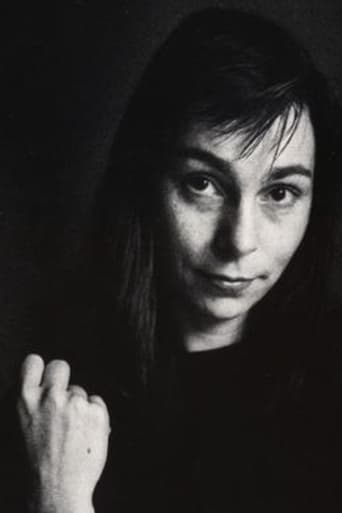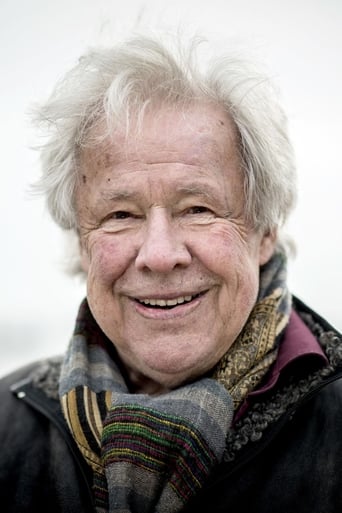Evengyny
Thanks for the memories!
Cleveronix
A different way of telling a story
Abbigail Bush
what a terribly boring film. I'm sorry but this is absolutely not deserving of best picture and will be forgotten quickly. Entertaining and engaging cinema? No. Nothing performances with flat faces and mistaking silence for subtlety.
Fatma Suarez
The movie's neither hopeful in contrived ways, nor hopeless in different contrived ways. Somehow it manages to be wonderful
clanciai
What strikes you first in this film is the very careful and extremely esthetic visual composition: every scene is like a beautiful painting, and Tarkovsky's knack for making his women exceptionally beautiful enhances the visual gratification. The actors are also all very good, Erland Josephson and Allan Edwall leading the extremely extraordinary speculations. A retired celebrity of letters and the theatre celebrates his birthday together with his friends and family in an isolated beautiful spacious old-fashioned house by the sea, when apparently the third world war breaks out. His wife immediately succumbs to hysterics, the young doctor Victor (Sven Wollter) gives them sedatives, the professor drinks brandy, while his friend Otto (Allan Edwall) comes with bizarre alternatives.I always had some difficulty with Tarkovsky's later abstract films for their extremely slow pace marked by a total absence of action, especially "Stalker" and "Nostalgia", but here something keeps happening all the time to keep you awake and interested: small details, the child's pranks, the mysterious kitchen maid in her beauty, Otto's indispensable bicycle, mirrors of course, breathtaking long shots, and above all the philosophical or parapsychological development going to bizarre extremes. How is this predicament to be dealt with? That's the issue of the labyrinth leading you on for constantly more exciting thought and practical experiments.This was the year of Ronald Reagan's strikes against Libya, the beginning of the Glasnost movement with Gorbachev, and the murder of the Swedish Prime Minister Olof Palme, a mystery still unresolved. And in the end of the year after this film Andrei Tarkovsky died of cancer at 54, which he probably had attracted from toxic fumes as early as during the shooting of "Stalker".There is much of Bergman here, the team is all Bergman's, and one could describe the film as more Bergman than Bergman. There is also many reminiscences of Carl Th. Dreyer, but it's still definitely all Tarkovsky: you recognize his special peculiarities and details in almost every scene.The most peculiar detail of the film is perhaps the surrealistic war scenes of total confusion showing random people running about in bewilderment among the ruins of a car and a lot of rubbish. The street shown in this scene is the very place where Prime Minister Olof Palme was shot six months after the film had been completed, and the camera is placed on the very spot - a notable coincidence.So where does all this lead to? Pure metaphysics. It's definitely a masterpiece of art but very difficult to understand, but it presents a very intriguing thought experiment - the professor is willing to sacrifice everything if the war is averted, he does sacrifice everything including his own mind, and he seems to achieve the desired result.The film is dedicated to the director's son, and the son in the film clearly stands in for him and both introduces and ends the film - to Bach's most beautiful air from the Passion of St. Matthew - "Have mercy", "Erbarme dir..."
alxbby
*some spoilers are included* After I've watched this for the first time, I was confused and not very happy. I liked the movie, but I expected it to be a total sacrifice movie because I was enchanted by Lars Von Trier movies and his work which is pretty cruel in my opinion ( and that's why I adore him) and then this movie gave me some kind of easy, light, kinda sleepy heavenly feel. It slowly introduced me to the world of the eternal beauty of nature, subtle philosophy teachings and the kindness of Alexander (I loved his personality all the time). It is not perfect because of the sacrifice itself, but of the glorious images which are also some very strong symbols. I adored the fire, it really touched me and I thought of some philosophy statements about the fire itself. If you want a total sacrifice I recommend "Breaking The Waves" (Lars Von Trier), but if you want an art treasure and nature yelling at your face, this is the great movie. I gave it 9/10 because the plot was little weak, maybe that is why I love this? I don't know, but this movie will have its hands on my mind for a long, long time.
vogonify
This turned out to be Andrei Tarkovsky's last film. Like it is almost always the case with his work, this too is about faith. Alexander, the protagonist worries about society and its lack of spirituality. The opening scene has him plant a tree with his young son. The last scene has the son, the only one not involved in the chaos everyone is, rest under it.Sacrifice is the closest Tarkovsky and Bergman came to making a film together. Sven Nykvist, the cinematographer, Erland Josephson as Alexander and Allen Edwall as Otto the postman were all longtime collaborators with the great Swedish director and Tarkovsky was apparently in awe of Bergman and his films. Through Nykvist and his magical control of light and the slow, meticulous, long shots set to Bach, Tarkovsky makes a work of extraordinary beauty. The story (or so) is about Alexander saving the world from a fatal war by making a string of personal sacrifices. We don't know how much of this is just his dream. Black and white shots are interspersed with shots of desaturated colour, the timeline is non-linear and it is possible that everything that happens is indeed a long dream. There is perhaps value in analysing the film as a study, but I am loath to do that. My experiences with such films have always been about curiosity. The questions this curiosity asks is mainly the "how did they do it" variety than the "what does he mean" kind. For instance, there is an early scene with Adelaide, Alexander's difficult wife and Maria, the housemaid who could also be a witch. Maria asks the lady if she can leave for the day. The scene is set in such a way that Adelaide paces left and right, while also getting closer to the camera with each turn. Maria is placed bang in the middle of the frame and her eyes follow Adelaide's pacing. At the end of it all, Adelaide ends up walking behind the line of the camera while Maria is staring at it. This is the sort of thing which elevates a film to a different plane. There is the story, the acting and the music yes, but this is something unequivocally cinema. The camera, the actors and their respective movements. In another scene, Alexander is shot as a reflection of a painting by Leonardo da Vinci (Adoration of the Three Kings). Apparently, Tarkovsky felt this would appear as if he was part of the painting and now he has come out of it. What a thought!
The_late_Buddy_Ryan
Tarkovsky's high-concept parable, his last film, may seem like extreme Bergman at first—some of the same actors and crew, including Erland Josephson and Sven Nykvist, same rugged northern coastline, a plot line that had been explored before (more or less) in Bergman's "Shame." And of course, Tarkovsky makes pretty extreme demands on the viewer; you have to endure an hour or so of gaseous philosophizing and world-weary epigrams before things really start happening. Until then, the only relief is supplied by a witchy Icelandic kitchenmaid (Guðrún Gísladóttir!) and an eccentric mailman who tells a spooky anecdote, plus lingering shots of the gorgeous set. Try not to doze off (like I did for a bit) or press the Stop button before Tarkovsky has a chance to display his full powers as a director and visual artist. Hint: there's an ominous announcement on the radio (a JVC tuner in what looks like an antique walnut cabinet) and the lights go out; as soon as Erland sets off on his wobbly bicycle ride, you're pretty much out of the woods (figuratively speaking—there's only one highly symbolic tree in sight). The haunting final scenes and the epilogue are justly celebrated, though I'll leave the mystical meaning of all this to others. I'd give four stars, at best, to the first hour or so, ten stars to the rest. Cinephiles may want to watch on DVD; the color on the streaming video on Amazon seemed a little washed out.


